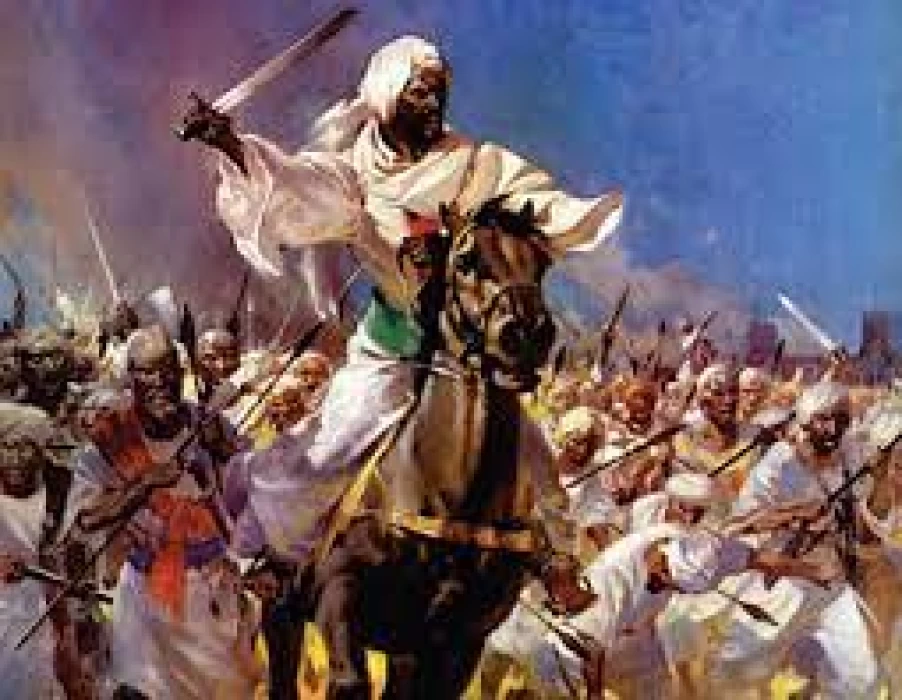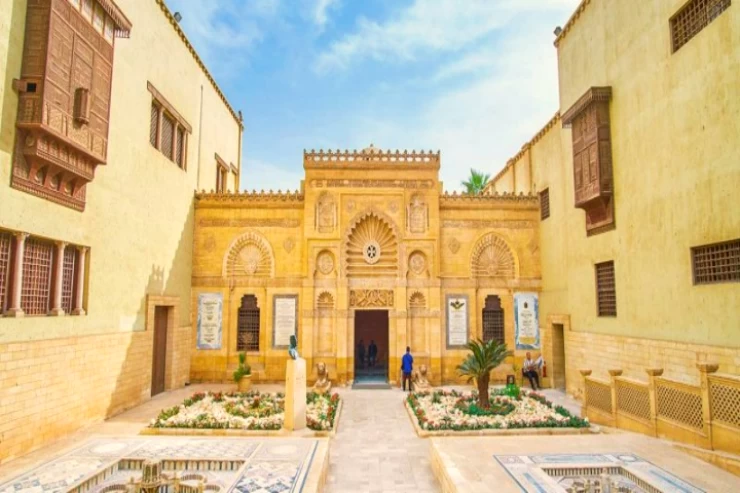
Kafur Abu al-Misk
Abu al-Misk Kafur Al-Ikhshidi al-Laithi al-Suri(292-357 Ah / 905-968 ad): he was a slave, probably from Abyssinia, bought by Al-Ikhshidi, King of Egypt, in 312 Ah, and attributed to him, freed him, and promoted him.
His life
He was bought in 923 ad by Muhammad ibn tughj, the founder of the ikhshidid dynasty, as one of the slaves from Abyssinia, and he was castrated and black in color, and Kafur was not handsome, but he was an ugly doll with a pierced lower lip, deformed feet, slow and heavy feet, so he fell into the hands of one of the oil traders and made fun of him in various affairs. Cavour endured both and received a lot of abuse from his master. Even if he got out from under the grip of his master and fell into the hands of Mahmoud Ibn Wahb Ibn Abbas, the writer.
His reign
The emergence of Kafur in the ikhshidid state was associated with the political conditions of this state, he was able to turn the rudder of the state after the death of Muhammad ibn tughj Al-ikhshid, as anugur (Mahmud) ibn Muhammad ibn tughj was still a fifteen-year-old boy, and narrates that Kafur would not have given onugur this opportunity to exercise himself to rule to benefit him and would not let him appear to people so that they do not know him, the star of onugur in it, onogur received the money allocated to him by Kafur, which amounted to four hundred thousand dinars a year.
Things turned out for Kafur, who owned power and money in his hand, and the matter narrowed with onogur at that time, he left the capital and claimed that he would go out for fun and hunting, so he went to the Ramla area of the land [Palestine] to empower himself and gather the diaspora around him and those who threw father Musk, and in his own decision and intention to snatch what was taken from his she saw that what is in her son's cupboards is not enough, it is a little thing that is hardly enough for what they are coveting, so she warned her son of the consequences of defeat, and she saw in standing by dad Musk an advantage and a gain for her family, and here we find that Kafur He gave up part of his pride and kindly wrote to onogur to appease him and his wishes, but the Little King had forgotten this question of the king and was convinced of the dirhams he received, and here things became serious and everything remained in the hands of my father Musk again, and it remained like this, as onogur died at the age of thirty years, and in the forty-nine and to get him out of his way, he was followed by his brother Ali ibn al-ikhshid, who himself was filled with horror at the power of Kafur and the severity of his misfortune, and Kafur gives to Ali ibn al-akhshid as his brother onogor used to give him in the past، But the authority that Kafur seized severely made him tighten the noose on him, so he did not let him appear to the people, which made the boy descend into a life of play and play, and then he turned to worship to find his peace, even if worship exhausted him, he rolled up his forearms to look for his stolen right to ask for it, so Kafur only hastened his death after he also planted poison on him.
Kafur did not receive a mandate from the Abbasid Caliphate. However, he was not opposed by her, and he was nicknamed the professor, and he was called Abu MiSK, and Kafur's foreign policy was a continuation of Muhammad ibn Tughj Al-ikhshid's policy of maintaining a balanced relationship with both the Abbasids and the Fatimids.
In general, he was close to the hearts of the Egyptians because he was generous and generous; he personally considered the needs of the people and the resolution of their grievances, and during his reign, the activity of the Fatimid preachers expanded in Egypt.















